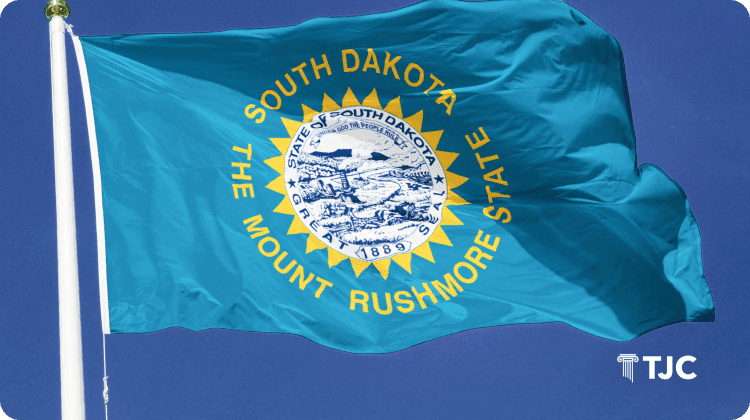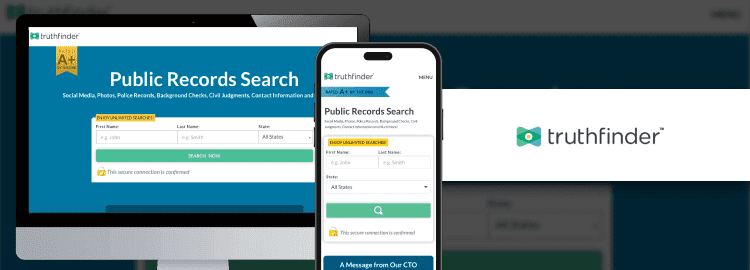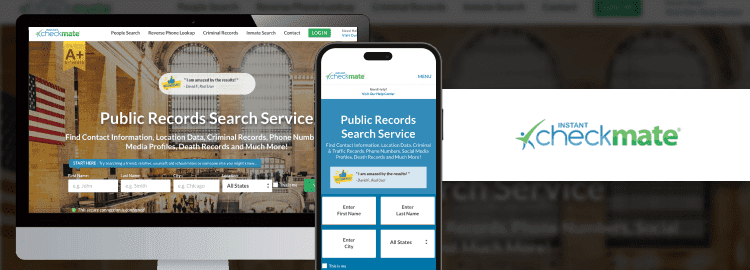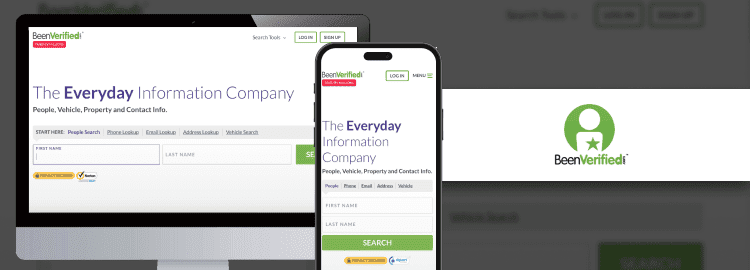Background Check in South Dakota: Laws & Screening Information

Background checks are important especially when you are an employer looking to hire, a landlord screening potential tenants, or someone curious about their public records. It will provide valuable background information on an individual and potential applicants.
In this article, we’ll cover everything you need to know about background checks in South Dakota, from the process of obtaining one to the federal laws governing them, such as the Civil Rights Act and Fair Credit Reporting Act. We’ll also know what appears on a background check, how long the process takes, and the associated costs. By the end, you’ll have a comprehensive understanding of background checks in South Dakota how they contribute to workplace safety, and how to navigate them.
Need a Background Check?
Get StartedWhat Is a South Dakota Background Check?
A background check in South Dakota is a process used to verify and review an individual’s history. This can include their criminal record, arrest record, employment history, education, credit history, and more. Background checks are commonly used by South Dakota employers during the hiring process to screen job applicants, potential tenants, and individuals who want to check their records for accuracy.
In South Dakota, background checks can provide insight into someone’s past and help ensure that decisions are made based on accurate and relevant information. State laws govern the specifics of what can be included in a background check and how this information can be used.
How Do I Get a State Background Check in South Dakota?
Getting a state background check in South Dakota is a multi-step process that requires attention to detail to ensure accuracy and compliance. Here’s a detailed guide to help you navigate through the process:
1. Determine the Type of Background Check Needed
Before initiating a background check, it’s important to identify the specific type of information you require. Common types of background checks include:
- Criminal Background Check: Used to check for criminal history, including arrests, convictions, and incarcerations.
- Employment History Check: Verifies past employment details such as job titles, dates of employment, and reasons for leaving.
- Education Verification: Confirms educational qualifications like degrees, diplomas, and certifications.
- Credit History Check: Provides information on credit accounts, payment history, bankruptcies, and credit inquiries.
- Driving Records Check: Details driving history, including traffic violations, accidents, and license status.
2. Gather the Required Information
Collect all necessary details about the individual you are checking. This typically includes:
- Full name (including any aliases or previous names)
- Age
- Date of birth
- Social Security Number
- Current and previous addresses
Having accurate and complete information is crucial for obtaining precise results.
3. Choose a Service Provider
Decide whether to use a third-party background check service or go through official channels like the South Dakota Division of Criminal Investigation (DCI). Each option has its pros and cons:
- South Dakota Division of Criminal Investigation (DCI): Offers official state-level criminal background checks, which are generally more reliable for legal and employment purposes.
- Online Background Check Services: This can provide a broader range of information quickly but may not be suitable for all types of checks, especially those requiring compliance with the Fair Credit Reporting Act (FCRA).
4. Complete Necessary Forms
Depending on the type of background check and the service provider, you’ll need to fill out specific forms. For state-level criminal background checks through the DCI, you will need to complete the South Dakota DCI Request Form. This form typically asks for the subject’s details and the type of check being requested.
5. Submit Fingerprints
For criminal background checks, submitting fingerprints is often a mandatory requirement. You can usually have your fingerprints taken at local law enforcement agencies such as police departments or sheriff’s offices. Here’s how to proceed:
- Locate a Fingerprinting Service: Check with local law enforcement or private companies that offer fingerprinting services.
- Schedule an Appointment: Some agencies may require you to schedule an appointment in advance.
- Provide Identification: Bring a valid ID, such as a driver’s license or passport, to verify your identity.
- Pay the Fee: There may be a fee for the fingerprinting service, which varies by location.
6. Pay Applicable Fees
Background checks come with processing fees that vary based on the type of check and the service provider. For instance, the South Dakota DCI charges around $26 for a state-level criminal background check. Third-party services might have different pricing structures, so it’s essential to verify the cost before proceeding.
7. Submit Your Request
After completing the necessary forms and gathering all required information, submit your request to the appropriate agency or service provider. This can typically be done in person, by mail, or online, depending on the provider’s policies.
- In-Person: Submit your forms, fingerprints, and payment directly at the office.
- By Mail: Mail your completed forms, fingerprints, and payment to the designated address. Ensure you use a secure mailing method to protect sensitive information.
- Online: Some providers offer online submission options, allowing you to upload documents and pay fees electronically.
8. Wait for the Results
The processing time for background checks can vary. Once the background check is processed, you’ll receive the results via the method specified during your request (e.g., mail, email, or online portal).
What Shows up on a South Dakota Background Check?
When you run a background check in South Dakota, the information you receive can vary depending on the type of check you request. Here’s a breakdown of common types of background checks and what typically shows up:
- Criminal History: This includes arrests, convictions, and incarcerations within the state. It may also include federal criminal records and sex offender registry information.
- Employment History: Verification of past employment, including job titles, dates of employment, and reasons for leaving.
- Education Verification: Confirmation of educational qualifications such as degrees and certificates.
- Credit History: Information on credit accounts, payment history, bankruptcies, and credit inquiries.
- Driving Records: Details of driving history, including violations, accidents, and license status.
What Are the Background Check State Laws and Regulations in South Dakota?
Understanding the State laws and regulations surrounding background checks in South Dakota is crucial for compliance and accuracy. Here are the key laws to be aware of:
20-13-10. Unfair or Discriminatory Practices
The Unfair or Discriminatory Practices Act is designed to prevent employment discrimination and ensure a fair hiring process and practices. This law prohibits discrimination based on race, color, creed, religion, sex, ancestry, disability, or national origin. When conducting background checks, employers must be cautious to ensure their processes do not lead to discriminatory practices.
The South Dakota State Consumer Protection Act
This act ensures that the information used in background checks is accurate and used fairly. One of the primary aspects of this act is the emphasis on accuracy and fairness. Consumer reporting agencies are required to take reasonable steps to ensure the accuracy and fairness of the information they provide. This means they must update and correct any inaccuracies promptly to prevent harm from incorrect data.
Fair Credit Reporting Act (FCRA)
The FCRA is a federal law that governs the use of consumer reports, including background checks. It sets guidelines for how consumer information can be collected, used, and shared. One key provision of the FCRA is the requirement for disclosure and consent. Before conducting a background check, employers must provide a clear and conspicuous disclosure to the individual and obtain their written consent.
Equal Employment Opportunity Commission (EEOC) Guidelines
The EEOC provides guidelines to ensure that background checks are conducted in a non-discriminatory manner. Employers must adhere to these guidelines to avoid discriminatory practices. One important point is that employers should only consider criminal records and other background information if it is relevant to the job.
Local South Dakota Fair Hiring Laws
Fair hiring laws in South Dakota aim to create equal employment opportunities and prevent discrimination during the hiring process. These laws apply statewide, but some cities and counties may have additional regulations.
- Sioux Falls: Implements local ordinances to promote fair hiring practices.
- Rapid City: Enforces fair employment laws to ensure non-discriminatory hiring.
Understanding and adhering to these laws can help South Dakota employers make informed decisions in the hiring process while protecting the rights of job applicants.
South Dakota County Resources
For more localized information, each county in South Dakota provides access to public records and resources. Here’s how to access them:
- County Courthouses: Each county courthouse maintains records such as criminal and civil cases, marriage licenses, and property records.
- Online Databases: Many counties offer online databases where you can search for public records. These databases are accessible through the respective county’s official website.
- Clerk of Courts: The Clerk of Courts office can assist in accessing court records and other public documents.
Utilizing these resources can help you obtain accurate and comprehensive information for background checks. You can find more information visiting the South Dakota Unified Judicial System website.
How Far Back Does a Background Check Go in South Dakota?
The scope of a background check in South Dakota can vary depending on the type of check and the specific information requested. Generally, criminal background checks can go back indefinitely, showing any past convictions or arrests. However, for employment history and credit checks, the typical range is seven to ten years.
Understanding the specific requirements and limitations for different types of background checks can ensure you get the most relevant information for your needs.
How Long Does a Background Check Take in South Dakota?
The turnaround time for background checks in South Dakota can vary based on several factors, including the type of check and the method used to obtain it. Here’s a general idea of how long different checks may take:
- Criminal Background Checks: These can take anywhere from a few days to a couple of weeks, depending on whether fingerprints are required.
- Employment History Checks: Typically, these can be completed within a few days, but delays can occur if previous employers are slow to respond.
- Education Verification: Usually takes a few days but can take longer if schools need more time to provide records.
- Credit Checks: These are often instant and can be completed within minutes.
Knowing the expected turnaround times can help you plan accordingly, especially if you’re working with tight deadlines.
How Much Does a Background Check in South Dakota Cost?
The cost of a background check in South Dakota can vary based on the type of check and the service provider. Here’s a breakdown of potential costs:
- Criminal Background Checks: Fees for state-level checks through the South Dakota DCI are typically around $26. Third-party services may charge more.
- Employment History Checks: Costs can range from $20 to $50, depending on the depth of the search.
- Education Verification: Fees can be around $10 to $30.
- Credit Checks: These usually cost between $10 and $20.
It’s important to factor in these costs when planning to conduct background checks, especially if multiple checks are needed.
Where To Get A Background Check In South Dakota?
There are several ways to obtain a background check in South Dakota, depending on the type of information you need:
- South Dakota Division of Criminal Investigation (DCI): For state-level criminal background checks, you can submit a request directly to the DCI.
- Local Law Enforcement Agencies: Many local police departments and sheriff’s offices can assist with fingerprinting and criminal record checks.
- Third-Party Background Check Services: Offer various types of personal background checks.
Choosing the right source for your background check can ensure you get accurate and timely information.
Best Background Check Services
If you’re looking for reliable third-party services to conduct personal background checks, here are some trusted options:
- TruthFinder – Best for Comprehensive Personal Background Checks
- Instant Checkmate – Best for Quick Searches
- BeenVerified – Best for Affordable Checks

TruthFinder is one of the most popular background check services available, known for its detailed and extensive reports. It provides a wide range of information, including South Dakota criminal records, contact information, social media profiles, and more. The platform is user-friendly and designed to deliver a wealth of data in an easy-to-read format.
Pros
-
Comprehensive reports
-
User-friendly interface
-
Includes social media information
Cons
-
Requires subscription plan
-
Limited free access
Star Rating
/ 5.0

Instant Checkmate is another well-regarded background check service, known for its speed and ease of use. It offers fast access to criminal records, address history, and other personal information. This service is ideal if you need quick results without compromising on the depth of the information.
Pros
-
Quick results
-
Easy to use
-
Detailed criminal records
Cons
-
Monthly subscription required
Star Rating
/ 5.0

BeenVerified offers an affordable and user-friendly way to conduct background checks. The service focuses on providing accurate and up-to-date information, making it a great choice for those on a budget. BeenVerified covers various types of records, including criminal history, public records, and contact information.
Pros
-
Affordable pricing
-
Easy access to a variety of records
-
Mobile app available
Cons
-
Limited to free information
-
Automatic renewal of subscription
Star Rating
/ 5.0
Conclusion On Background Check South Dakota
Understanding background checks in South Dakota is essential for making informed decisions, whether you’re an employer, landlord, or just curious about your records. By familiarizing yourself with the laws, processes, and available resources, you can ensure that the information you receive is accurate and relevant. Remember, background checks are a powerful tool for ensuring safety, compliance, and peace of mind.
Disclaimer: Some background check sites are just for personal use and conducting basic people searches. Others, such as those used by potential employers, must comply with the Fair Credit Reporting Act (FCRA). This law limits the types of information you can find on other people. If you’re an employer or landlord using a background check for professional purposes, be sure to choose a site that’s FCRA compliant. Using a people search site that doesn’t comply with the FCRA to screen potential tenants, domestic workers or employees is illegal.

